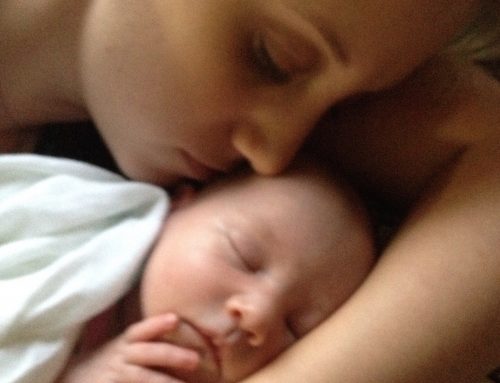When the ideas of attachment parenting were being developed in the 1960’s or so, the advice was fairly ‘gender neutral’.
Later however data started to accumulate that baby boys’ needs were different from that of girls. Not qualitatively but quantitatively. Male babies on average have greater difficulty self-regulating their emotional state and therefore have a greater reliance on emotional support. They need it both more intensely and for a longer period than girls.1
In essence, mothers need to work harder with their boys than their girls.2
It seems that that boys’ brains develop more slowly3 , and are more vulnerable to negative outside influences, possibly as a consequence of the presence of the male hormone testosterone.4,5
So here we have a double whammy. The very babies that our culture says have to be brought up to be tough, who should ‘man up’ and not show their emotions, are precisely the ones that are harmed by that attitude.
If you want your boys to grow up to be brave, secure and exploratory but empathic and caring, allow them to remain babies for longer.
Mothers often know this at an intuitive level but sometimes the father does not. And he really needs to know.
REFS:
1) Tronick, E. (2007). “The Norton series on interpersonal neurobiology. The neurobehavioral and social-emotional development of infants and children”. New York, NY, US: W W Norton & Co.
2) Weinberg MK1, Tronick EZ, Cohn JF, Olson KL. “Gender differences in emotional expressivity and self-regulation during early infancy.” Dev Psychol. 1999 Jan;35(1):175-88.
3) Thordstein M1, Löfgren N, Flisberg A, Lindecrantz K, Kjellmer I. “Sex differences in electrocortical activity in human neonates.” Neuroreport. 2006 Jul 31;17(11):1165-8.
4) Bingham B1, Wang NX, Innala L, Viau V “Postnatal aromatase blockade increases c-fos mRNA responses to acute restraint stress in adult male rats.” Endocrinology. 2012 Apr;153(4):1603-8. doi: 10.1210/en.2011-1749. Epub 2012 Feb 7.
5) Bergman K1, Sarkar P, Glover V, O’Connor TG. “Maternal prenatal cortisol and infant cognitive development: moderation by infant-mother attachment.” Biol Psychiatry. 2010 Jun 1;67(11):1026-32. doi: 10.1016/j.biopsych.2010.01.002. Epub 2010 Feb 25.
____________________________________________________________________________
or check out this wonderful lecture by Allan Schore:
“Neurobiology of Boys at Risk.”
https://www.youtube.com/watch?v=P451kiWSBic










Leave A Comment
You must be logged in to post a comment.